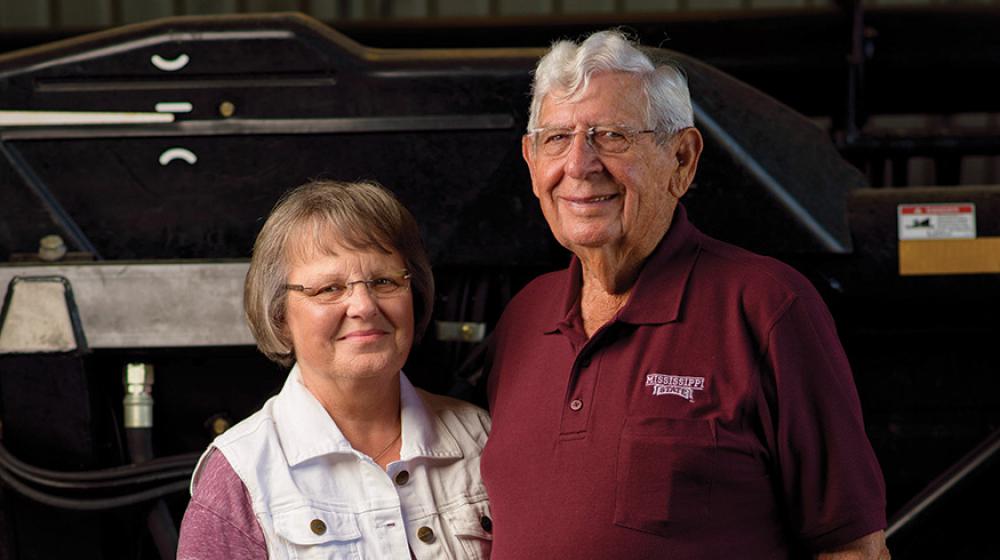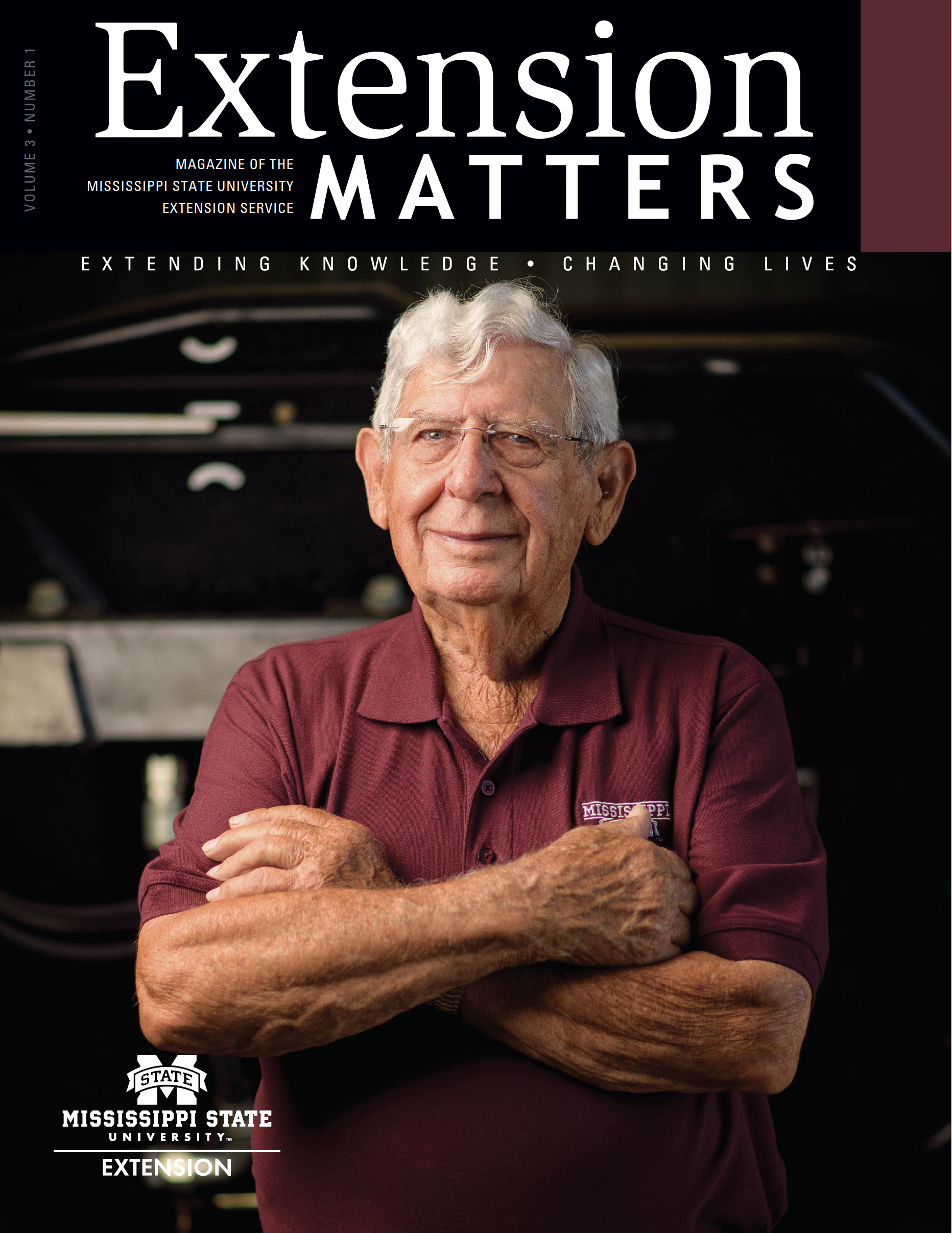The Good Seed

Joyce Good (left) and Paul Good, producer
Macon producer sees success with Extension collaboration
Ask Paul Good how he has succeeded in agriculture for more than 70 years, and he gives two pieces of advice: pay attention to even the smallest details when scouting crops, and take advantage of all available educational opportunities.
The 90-year-old row-crop producer credits the Mississippi State University Extension Service with providing him much of his knowledge. From offering information about evolving technologies to explaining the state’s agricultural nuances, Extension agents have worked with Good since he moved to Macon from Valparaiso, Indiana, in 1974 with his wife, Joyce, and five children.
Good, who grows corn, cotton, and soybeans on about 1,000 acres near Brooksville, has racked up numerous accolades recognizing his work and success growing row crops. His most recent recognition is as the 2016 Swisher Sweets/Sunbelt Expo Southeastern Farmer of the Year for Mississippi. This recognition made him a finalist in the southern region competition.
“In 70 years of farming, I have seen a lot of changes in the industry, but I still enjoy the work,” Good says. “I think we are growing the cleanest, safest, and most nutritious produce we’ve ever had, and I couldn’t have been successful here without the faculty and staff at MSU Extension.”
Good, a sixth-generation farmer, is known by many Extension agents and specialists, as well as his peers, for his efficiency. Good learned from his father at an early age to make the most out of the resources he had. Over the years, Good has sought to use what he learns as a producer cooperator, working with Extension personnel to try out new crops and methods on his own land. He also reads as many Extension publications as he can.
“I grew up during the Dust Bowl, and the challenges that event brought to farming made me want to conserve and made me realize my methods of farming needed to change,” he says. “My father encouraged my siblings and me to get into farming and to get as much agricultural education as we could. He allowed us to get on the farm and try different crops, and he used college materials himself to teach us. Through the years, I’ve tried to remember how much value he placed on that and take as many of MSU Extension’s field days and short courses as I can. I’m fortunate to have that available.”
Good had already been working in agriculture for nearly 30 years in Indiana when he began to see more industrial and residential developments moving nearer to his area. He saw more fertile soil in the South during several trips to Mississippi.
“We felt a real peace about this area and saw potential,” he says. “I wasn’t certain how much, but things turned out really well.”
MSU Regional Extension Specialist Dr. Dennis Reginelli continuously works with Good to use portions of his land to grow demonstration and research crops.
“One thing we did years ago that made an impact with Paul was a soybean management program,” Reginelli says. “We replicated his standard soybean population, but, on the demonstration plot, we used only 75 percent of his usual planting rate. We wanted to show that we could maintain and increase yields with fewer plants per acre to save money. He saw on his own land how well the strategy worked.”
As a producer-cooperator, Good also hosts tours on his farm for other producers wanting to compare management strategies with their peers.
“He allows us to do demonstration plots with him, and he is picking up a lot of information he can use on his farm,” Reginelli explains. “He also goes to the row-crop short courses and field days. He takes our research and information and sees what he can do with it on his farm to improve his production.”
“What I get in turn is so much greater than what I let Extension use,” Good adds. “Seeing the weaknesses and strengths in each yield has helped me make better decisions with what I grow.”
The land that Paul and Joyce Good manage now is not the only land in the family. They’ve already passed down land that several of their children now farm.
“We both have strong work ethics and were taught to work hard and help others,” Joyce says. “We wanted to leave a legacy to our children and worked toward that goal since we got married.”
Extension Shares Knowledge with Courses and Field Days
Field days and short courses are educational meetings that Extension specialists host to update Mississippi producers on current agriculture research at MSU. These meetings provide information producers can use during the growing season to help them have successful harvests.
Field days are generally held at research centers or experiment stations and feature tours of research plots, industry exhibits, and information on various crops and plant management. Some field days feature tours of demonstration plots on the farms of producer-cooperators like Paul Good, so that visitors can see new varieties or management methods tested under conditions similar to their own. Field days are held several times throughout the year.
The MSU Row Crop Short Course is a comprehensive, 3-day event held annually on the Starkville campus that covers new research related to the state’s major crops. The 2016 conference allowed producers to voice their concerns about herbicide resistance, and Extension experts presented insect- and disease-control information and productivity enhancement strategies.
Information on upcoming field days is available at mississippi- crops.com/category/meetings/field-days. Visit extension.msstate.edu/row-crop-short-course to learn about the 2017 short course, which will be held at the beginning of December.


